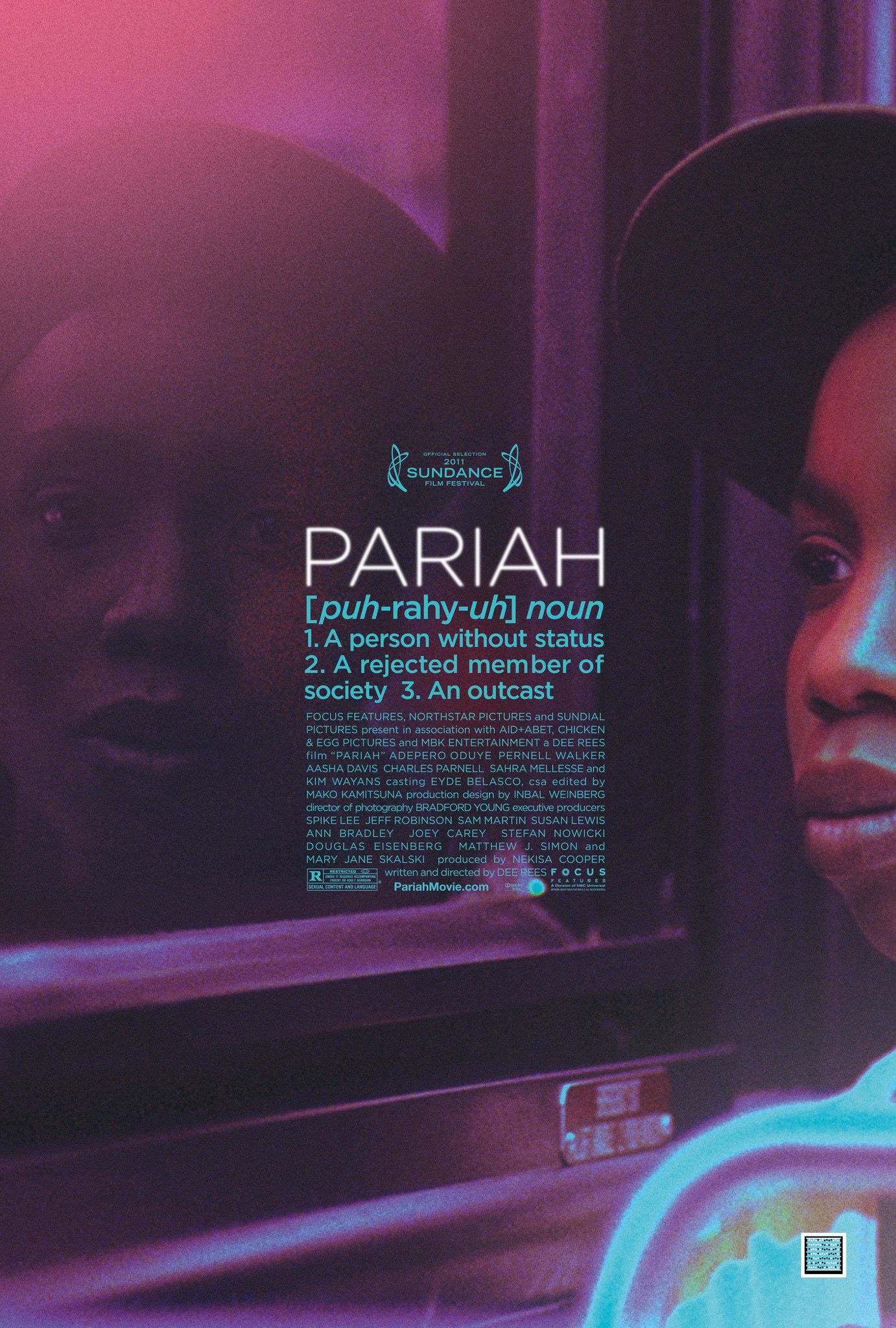PARIAH: CELEBRATING LGBTQ+ IDENTITY AND RESILIENCE IN PRIDE MONTH
PARIAH: CELEBRATING LGBTQ+ IDENTITY AND RESILIENCE IN PRIDE MONTH
During Pride Month, we come together to celebrate and uplift the LGBTQ+ community, their stories, and their achievements. In this spirit of celebration, we take a closer look at the critically acclaimed film “Pariah.” Released in 2011, “Pariah” is a powerful and poignant coming-of-age drama that explores themes of identity, self-acceptance, and resilience within the Black lesbian community. Through its authentic portrayal of the challenges faced by LGBTQ+ individuals, “Pariah” serves as a catalyst for reflection and celebration during Pride Month.
- Unveiling the Narrative: a.
Storyline and Characters: “Pariah,” written and directed by Dee Rees, centers around the life of Alike (played by Adepero Oduye), a young Black lesbian teenager navigating her journey of self-discovery. The film showcases the complexities of Alike’s life as she grapples with her sexuality, the expectations of her conservative family, and her pursuit of personal freedom and happiness.
Cultural and Intersectional Identities: “Pariah” delves into the experiences of Black LGBTQ+ individuals, highlighting the intersections of race, gender, and sexuality. By addressing the specific challenges faced by Alike within her community and family, the film sheds light on the importance of intersectional perspectives within the broader LGBTQ+ movement.
- Breaking Stereotypes and Challenging Norms:
Authentic Representation: “Pariah” offers an authentic portrayal of the experiences and emotions that LGBTQ+ individuals, particularly those within the Black lesbian community, often encounter. The film avoids relying on harmful stereotypes, instead providing multidimensional characters with diverse identities and struggles, fostering empathy and understanding.
Navigating Family Dynamics: A significant aspect of “Pariah” revolves around Alike’s relationship with her family, particularly her mother (played by Kim Wayans). The film explores the tension between Alike’s desire for self-expression and her family’s struggle to accept her sexuality, highlighting the internal conflicts and emotional resilience LGBTQ+ individuals often face in their familial relationships.
- Celebrating Resilience and Self-Discovery:
Embracing Authenticity: “Pariah” celebrates the courage of LGBTQ+ individuals who stay true to themselves, even in the face of adversity. Alike’s journey of self-acceptance and embracing her identity becomes a powerful testament to the resilience and strength found within the LGBTQ+ community.
Finding Community and Support: Through her exploration of self-discovery, Alike discovers a vibrant and supportive community that welcomes her with open arms. “Pariah” highlights the significance of finding acceptance and understanding within chosen families, as well as the role of community organizations and safe spaces in fostering LGBTQ+ empowerment and solidarity.
- Impact and Ongoing Conversations:
Representation in Cinema: “Pariah” stands as an influential film that amplifies the voices and stories of LGBTQ+ individuals, particularly those from marginalized communities. Its impact extends beyond the screen, contributing to the broader conversation surrounding representation and the importance of authentic narratives in cinema.
Continuing the Dialogue: Pride Month provides an opportune moment to engage in meaningful conversations sparked by films like “Pariah.” By discussing the film’s themes, exploring personal experiences, and supporting LGBTQ+ voices, we can foster greater empathy, understanding, and acceptance within society.
“Pariah” serves as a powerful reminder of the challenges and triumphs experienced by LGBTQ+ individuals, specifically within the Black lesbian community. During Pride Month, as we celebrate and honor the diverse identities within the LGBTQ+ spectrum, films like “Pariah” provide us with the opportunity to reflect, empathize, and stand in solidarity.




